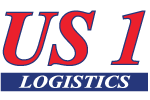Starting a career as a freight broker agent can be incredibly rewarding, but like any business, success requires a solid plan. Whether you’re new to the logistics industry or looking to take your freight broker agent business to the next level, having a clear business plan will help you map out your goals and define the steps needed to achieve them. In this article, we’ll break down how to create an effective freight broker agent business plan and why freight broker agent training is key to your long-term success.
Why You Need a Freight Broker Agent Business Plan
A business plan is more than just a formality—it’s your roadmap to growth, profitability, and sustainability in the competitive world of freight brokerage. A well-crafted  freight broker agent business plan helps you clarify your business model, identify your target market, and outline your strategies for success. Without a plan, it’s easy to lose focus and miss out on potential opportunities.
freight broker agent business plan helps you clarify your business model, identify your target market, and outline your strategies for success. Without a plan, it’s easy to lose focus and miss out on potential opportunities.
Here are the key sections you should include in your freight broker agent business plan:
1. Executive Summary: The Snapshot of Your Business
The executive summary gives a quick overview of your business, providing a snapshot of your goals, mission, and key selling points. Though it’s usually written last, it appears first in your plan.
Include:
- A brief description of your freight broker agent business
- Your mission statement (e.g., providing efficient, reliable freight solutions for shippers and carriers)
- Your goals for the next 1-5 years
Example:
“Our freight broker agent business will specialize in connecting small-to-medium-sized shippers with reliable carriers to ensure timely and cost-effective freight transportation. Our mission is to simplify the shipping process while delivering exceptional customer service.”
2. Market Analysis: Understanding the Industry
To succeed as a freight broker agent, it’s essential to have a deep understanding of the logistics industry and the market you’re operating in. A strong market analysis is the foundation for creating effective business strategies, identifying your opportunities, and addressing potential challenges. By thoroughly examining industry trends, competition, and target customers, you’ll be better positioned to offer services that meet specific needs while standing out in a competitive field.
Here’s how to conduct a comprehensive market analysis for your freight broker agent business:
Identify Your Target Customers
 One of the first steps in your market analysis is determining who your customers are. Freight brokers and agents serve a wide variety of shippers, each with unique needs and logistical challenges. Understanding the specific industries or types of businesses you want to serve allows you to tailor your services and marketing strategies.
One of the first steps in your market analysis is determining who your customers are. Freight brokers and agents serve a wide variety of shippers, each with unique needs and logistical challenges. Understanding the specific industries or types of businesses you want to serve allows you to tailor your services and marketing strategies.
Questions to Consider:
- Which industries do you want to focus on? Some freight brokers specialize in particular sectors such as retail, automotive, manufacturing, agriculture, or technology. For example, the agricultural sector may need freight solutions that accommodate seasonal variations, while the automotive industry may require expedited shipping for just-in-time inventory management.
- What types of freight will you handle? This could include dry van shipping, refrigerated goods (reefer), oversized loads, hazardous materials, or specialized equipment. Knowing what kind of freight you want to broker can help you define your niche and attract clients with specific needs.
- What are the shipping needs of your target customers? Some businesses may prioritize cost, while others are more concerned with fast delivery times, tracking capabilities, or specialized handling. Understanding these priorities will help you position yourself as the right solution for their logistics needs.
Practical Example: If you decide to focus on the e-commerce sector, you might emphasize your ability to coordinate last-mile delivery services, which is crucial for companies looking to get products directly into consumers’ hands quickly.
Research the Competition
The freight brokerage industry is competitive, and standing out requires a clear understanding of what your competitors are offering and how you can differentiate your services. By conducting a thorough analysis of other freight brokers and agents in your area (or target market), you can identify both opportunities and potential challenges.
Key Areas to Research:
- Who are your direct competitors? Are there well-established freight brokers in your region or niche? What specific services do they offer?
- What are their strengths and weaknesses? Evaluate what your competitors do well—such as excellent customer service or a large carrier network—and where they may fall short, like long response times or limited geographic coverage.
- How do they market themselves? Study their online presence, including their website, social media activity, and customer reviews. Understanding their marketing strategies can give you insights into how they attract and retain clients.
- What pricing strategies do they use? Pricing plays a huge role in customer decision-making. If your competitors offer rock-bottom prices, you’ll need to find other ways to add value, like offering superior customer support or niche services. Conversely, if they have higher rates, you may be able to attract customers with competitive pricing.
Practical Example: Let’s say you discover that most of your competitors are generalists, handling all types of freight without specializing in a particular niche. You could differentiate yourself by focusing exclusively on high-value or fragile goods, offering specialized handling and tracking for sensitive shipments.
Analyze Industry Trends
Understanding the broader trends that shape the logistics industry is crucial for staying ahead of the curve. The freight shipping landscape is constantly evolving, and staying on top of current trends allows you to adapt your services and anticipate shifts in demand.
Some key industry trends to consider include:
- E-commerce growth: The rise of e-commerce has drastically increased the demand for efficient shipping solutions, particularly for last-mile deliveries. Freight broker
 agents who can cater to the unique needs of e-commerce businesses—such as rapid fulfillment and seamless tracking—will find themselves well-positioned for success.
agents who can cater to the unique needs of e-commerce businesses—such as rapid fulfillment and seamless tracking—will find themselves well-positioned for success. - Supply chain disruptions: Recent years have shown the fragility of global supply chains, with disruptions caused by events like the COVID-19 pandemic, natural disasters, and geopolitical conflicts. As a freight broker agent, you must develop contingency plans and establish relationships with multiple carriers to offer flexibility during these disruptions.
- Fuel price volatility: Freight costs are heavily impacted by fluctuating fuel prices. Offering cost-efficient shipping solutions during times of rising fuel costs can help you attract cost-conscious shippers. Additionally, keeping up with fuel surcharge trends will ensure you stay competitive when quoting rates.
- Sustainability and green logistics: More businesses are prioritizing sustainability in their operations, including their shipping practices. Offering eco-friendly freight options, such as partnering with carriers that use fuel-efficient trucks or promoting route optimization to reduce carbon emissions, can appeal to environmentally conscious clients.
- Technology advancements: The logistics industry is becoming increasingly reliant on technology. From Transportation Management Systems (TMS) to real-time freight tracking and load-matching platforms, embracing technology can give you a competitive edge. By investing in the latest tools, you can provide more efficient services and better communication with both shippers and carriers.
Practical Example: The growth of e-commerce has caused a surge in demand for small, frequent shipments rather than bulk orders. If your market analysis shows this trend, you could specialize in LTL (less-than-truckload) freight solutions, allowing you to cater to businesses that need to ship smaller loads quickly.
Practical Tip: Enroll in Freight Broker Agent Training
One of the most effective ways to enhance your market analysis and business strategies is to invest in freight broker agent training. These courses not only provide insights into industry trends and market strategies but also equip you with the tools and knowledge to stay competitive.
Benefits of Training:
- Industry insights: Gain a deep understanding of current market trends, regulations, and technology advancements that impact the logistics industry.
- Networking opportunities: Training programs often connect you with experienced professionals and potential partners, giving you access to valuable relationships and insider knowledge.
- Business growth strategies: Many training programs offer specific modules on market analysis, helping you refine your approach to identifying target customers and evaluating the competition.
By understanding the freight industry landscape through a thorough market analysis, you can tailor your services to meet the needs of your target customers, outshine your competitors, and capitalize on emerging trends. The freight brokerage industry is constantly evolving, and staying ahead with continuous learning and strategic planning will position your business for long-term success.
3. Services Offered: Defining Your Niche
In any freight broker agent business plan, the services you provide are at the heart of your operations. Clearly defining these services not only helps you set expectations for your clients but also enables you to establish your unique value proposition in the market. While freight broker agents generally serve as intermediaries between shippers and carriers, offering specialized and customized services can differentiate your business and position you as an expert in a specific niche.
Let’s explore the core services that most freight broker agents offer, as well as specialized services that can help you stand out in a competitive industry.
Core Services for Freight Broker Agents
At its core, the role of a freight broker agent is to facilitate the efficient movement of goods by connecting shippers (who need to transport products) with carriers (who provide transportation services). Here are some of the essential services you’ll likely offer:
- Carrier Matching One of your primary tasks as a freight broker agent will be matching the right carriers with shippers. This involves leveraging your network of
 carriers to find transportation providers that meet your clients’ specific requirements, such as truck availability, route preferences, or specialized equipment. A solid carrier network is essential for providing reliable service, especially during peak seasons or in high-demand markets.
carriers to find transportation providers that meet your clients’ specific requirements, such as truck availability, route preferences, or specialized equipment. A solid carrier network is essential for providing reliable service, especially during peak seasons or in high-demand markets.
Example: If a shipper requires temperature-sensitive transportation, you would match them with a carrier offering refrigerated truck (reefer) services.
- Freight Rate Negotiation Freight broker agents often handle negotiating shipping rates between shippers and carriers. You’ll need to have strong negotiation skills and a good understanding of current market rates to ensure you provide competitive pricing while maintaining profitable margins. The ability to secure fair rates for both parties builds trust and helps develop long-term relationships with clients and carriers alike.
Example: For high-volume shippers, you might negotiate bulk shipping discounts or secure preferential rates for repeat business, helping your clients cut costs.
- Load Tracking and Monitoring Real-time load tracking is increasingly important for both shippers and carriers, allowing them to monitor the progress of their freight from pick-up to delivery. As a freight broker agent, you can offer technology solutions that provide clients with live updates on their shipments. Utilizing tools like Transportation Management Systems (TMS) or integrated GPS tracking can help enhance transparency and customer satisfaction.
Example: Providing clients with regular updates or 24/7 tracking dashboards can offer peace of mind and improve communication throughout the shipping process.
- Freight Documentation and Compliance Proper documentation and regulatory compliance are critical aspects of freight transportation. Your role may include managing all paperwork, such as bills of lading, customs declarations, and insurance documents. Ensuring compliance with federal and state regulations (such as those from the Federal Motor Carrier Safety Administration, or FMCSA) can prevent costly delays or fines for your clients.
Example: Helping shippers navigate the complexities of cross-border shipping by ensuring all required documentation is in place before the freight reaches customs.
- Customer Service for Shippers and Carriers Providing exceptional customer service is one of the most important parts of being a successful freight broker agent. Shippers and carriers will turn to you for problem-solving when issues arise—whether it’s delays, route changes, or damaged freight. By offering clear, consistent communication and quick responses to inquiries, you’ll build strong relationships and foster trust with both parties.
Example: If a carrier encounters an unexpected roadblock that will delay delivery, your proactive communication with the shipper about alternative solutions can help mitigate negative impacts.
Specialized Services: Defining Your Niche
In addition to core services, offering specialized services can help set your business apart from competitors. Choosing a niche allows you to position yourself as an expert in a particular area, whether it’s focusing on a specific region, industry, or type of freight. This targeted approach can make your services more attractive to clients looking for specific expertise.
- Industry-Specific Solutions Some freight broker agents choose to specialize in certain industries, offering tailored solutions based on the specific needs of that
 sector. For instance, industries like agriculture, pharmaceuticals, retail, and construction have unique shipping requirements that general freight brokers may not fully understand. By specializing in one of these fields, you can differentiate your services and attract niche clients.
sector. For instance, industries like agriculture, pharmaceuticals, retail, and construction have unique shipping requirements that general freight brokers may not fully understand. By specializing in one of these fields, you can differentiate your services and attract niche clients.
Example: If you specialize in agriculture freight, you’ll have a deep understanding of seasonal demand, perishability issues, and the specific equipment (like flatbeds or refrigerated trucks) needed to transport products safely.
- Expedited Freight Services Expedited freight is a highly valued service for industries that require fast, time-sensitive deliveries. As a freight broker agent, offering expedited shipping options can set you apart from competitors who focus solely on standard delivery. Expedited services are particularly useful for industries such as healthcare, automotive, or manufacturing, where downtime can be costly.
Example: A manufacturing client needs a part delivered overnight to avoid a production line halt. You coordinate an expedited shipment that ensures the part arrives in time, minimizing costly delays.
- Specialized Equipment Services Not all freight is suited for standard dry van transportation. Offering specialized equipment services, such as flatbeds, oversized loads, or temperature-controlled reefer trucks, can help you carve out a niche and attract clients with unique shipping needs. These services are particularly beneficial for industries like construction, heavy machinery, and food distribution.
Example: A construction company needs to transport large steel beams that won’t fit in a traditional truck. You arrange flatbed transportation to safely accommodate the oversized load.
- Regional Focus or Lane Specialization Another way to differentiate yourself is by focusing on specific regions or lanes. For example, you could specialize in cross-border shipments between the U.S. and Mexico or build your business around routes in the Midwest or East Coast. Specializing in certain geographic regions allows you to develop a deep knowledge of the local shipping challenges, regulations, and best routes.
Example: A business that focuses on the East Coast can leverage its knowledge of the region’s ports, highways, and distribution centers to offer efficient, cost-effective shipping solutions.
- White-Glove Services Some clients require more than just freight transportation—they need white-glove services, which include handling high-value, fragile, or bulky items with extra care. White-glove freight involves specialized packaging, delivery, and sometimes assembly, making it an appealing service for industries like electronics, fine art, and luxury goods.
Example: A company that needs to ship valuable electronics may prefer your white-glove service, which includes custom crating, temperature control, and delivery to the end-user with care and precision.
Benefits of Defining a Niche
Specializing in a specific type of service or industry comes with several benefits:
- Increased Expertise: By focusing on a niche, you can deepen your expertise in that area, making your services more attractive to clients who need specialized knowledge.
- Higher Profit Margins: Specialized services often command higher rates because they cater to unique needs or offer added value, such as expedited shipping or specialized handling.
- Stronger Client Relationships: When you focus on a niche, you’ll develop stronger, more personalized relationships with clients who appreciate your in-depth understanding of their industry or region.
Practical Tip: To find your niche, analyze the industries or regions you have the most experience with or interest in. Focus on an area where demand is high, and where you can leverage your expertise to offer tailored solutions that go beyond the standard freight services.
By defining the services you offer and finding a niche that sets you apart, your freight broker agent business will not only meet the basic needs of your clients but also exceed their expectations with specialized solutions. Whether you’re focusing on a particular industry, offering expedited services, or providing top-tier customer service, a well-defined niche can be the key to building a successful and profitable freight brokerage business.
4. Sales and Marketing Strategy: Building Your Client Base
A well-thought-out sales and marketing strategy is the driving force behind the growth of your freight broker agent business. In a competitive market, simply offering great services isn’t enough—you need a plan for how you’ll connect with potential clients, convert leads into business, and retain valuable customers. A strong strategy will help you attract both shippers who need transportation solutions and carriers who provide those services.
In this section, we’ll explore key components of a successful sales and marketing strategy, including lead generation tactics, online presence, referral programs, and SEO optimization.
Lead Generation: Finding New Customers
Generating leads is the lifeblood of any business, and for freight broker agents, attracting both shippers (your clients) and carriers (your partners) is essential. The first step is identifying how you will find and engage new customers. Here are some proven lead generation strategies to consider:
step is identifying how you will find and engage new customers. Here are some proven lead generation strategies to consider:
- Cold Calling: One of the oldest and most direct methods for finding new business is cold calling. While it can be time-consuming, it’s an effective way to build connections with shippers and carriers. Start by compiling a list of potential clients—whether it’s local businesses in your niche or contacts from industry directories—and reach out with a brief introduction to your services. Tailor your pitch to show how you can solve their specific shipping challenges, offering a free consultation or quote.
Practical Tip: Make cold calling more efficient by developing a sales script and using CRM (Customer Relationship Management) software to track conversations and follow-ups.
- Networking at Industry Events: Attending trade shows, conferences, and logistics expos is a great way to connect with potential clients and carriers in person. These events allow you to meet key decision-makers, discuss the services you offer, and establish relationships face-to-face. Networking at these events also gives you the opportunity to stay informed on industry trends and gather insights from peers.
Example: Freight and logistics expos, such as Transport Logistics USA, are ideal opportunities to meet shippers looking for brokers and carriers seeking freight.
- Online Advertising: Paid online advertising, such as Google Ads or social media ads on platforms like LinkedIn or Facebook, can target specific industries or regions and bring traffic to your website. Advertising allows you to reach a broader audience quickly and can be highly effective when optimized for your target market.
Practical Tip: Use targeted ads to focus on key demographics, such as shippers in specific industries (e.g., retail or automotive) or carriers in your geographic area, and measure performance using analytics tools.
Online Presence: Establishing Credibility and Expanding Your Reach
In today’s digital world, having a strong online presence is critical for building credibility and reaching potential clients. Your online presence serves as a first impression for shippers and carriers who are searching for freight services, so it’s important that your business looks professional and is easy to find online.
- Professional Website: A well-designed, user-friendly website is your digital storefront. It should clearly showcase your services, industry expertise, and how shippers and carriers can benefit from working with you. Your website should include:
- A services page detailing the types of freight solutions you provide.
- An about page that highlights your experience and credentials.
- A contact form for potential clients to easily request more information or a quote.
Practical Tip: Include case studies or testimonials from satisfied clients to build trust with new visitors. These endorsements can demonstrate your ability to deliver on your promises.
- Social Media Presence: Social media platforms like LinkedIn, Facebook, and Instagram can be powerful tools for connecting with shippers and carriers, sharing industry news, and showcasing your expertise. LinkedIn is particularly valuable for B2B (business-to-business) marketing, where you can build a network of logistics professionals, engage with relevant content, and participate in industry groups.
Example: Use LinkedIn to post relevant articles on the latest logistics trends, offer helpful tips for shippers, and share success stories of how you helped a client with a challenging freight solution.
- Content Marketing: Creating informative content such as blogs, videos, or whitepapers positions you as a thought leader in the freight industry. This can attract potential clients who are searching for advice on shipping or transportation management. Regular blog posts can also improve your SEO ranking, helping more people discover your services.
Example: Publish blog posts on topics like “How to Choose the Right Freight Broker Agent for Your Business” or “The Benefits of Expedited Freight Services,” and share them across your social media channels.
Referral Programs: Incentivizing Word-of-Mouth Marketing
A successful freight broker agent business thrives on strong relationships with both shippers and carriers, and one of the most powerful ways to grow your client base is through referrals. People are more likely to trust a service recommended by someone they know, making referral marketing one of the most cost-effective strategies.
- Referral Incentives: Consider offering discounts or commissions to existing clients or carriers who refer new business to you. This not only encourages your clients to spread the word about your services but also strengthens your relationship with them by rewarding their loyalty.
Example: Offer shippers a 5% discount on their next load or provide a small cash incentive for each successful referral. Carriers could receive a bonus for recommending a new client.
- Networking for Referrals: Building strong relationships with other logistics professionals can also lead to valuable referrals. Freight brokers, trucking companies, and even warehouse operators may have leads they can pass along when they’re unable to accommodate a client’s needs.
Practical Tip: Follow up with clients regularly to ensure they are happy with your services and gently remind them of your referral program. A positive experience increases the likelihood of them recommending you to others.
SEO Optimization: Driving Traffic to Your Website
Search Engine Optimization (SEO) is a crucial tool for ensuring that potential clients find you online when they search for freight brokerage services. By optimizing your website and content with the right keywords, you can improve your ranking in search engine results pages (SERPs) and attract more organic traffic.
- Keyword Research: Start by identifying the key terms your potential clients are likely to search for. These could include phrases like freight broker agent business
 plan, freight broker agent training, or freight shipping solutions. Incorporate these keywords naturally into your website copy, blog posts, and metadata to improve your search visibility.
plan, freight broker agent training, or freight shipping solutions. Incorporate these keywords naturally into your website copy, blog posts, and metadata to improve your search visibility.
Example: Write blog posts using keywords like “How to Build a Freight Broker Agent Business Plan” or “Best Freight Broker Agent Training Programs,” optimizing each post with relevant long-tail keywords to drive more traffic.
- Local SEO: If you focus on specific regions or local markets, optimize your website for local search results by including your city or state in keywords (e.g., “freight broker agent in Dallas”). Claim your business on Google My Business and other local directories to enhance your visibility in localized searches.
Practical Tip: Use tools like Google Analytics to track the performance of your SEO efforts. Regularly update your site with fresh content and continue optimizing pages to stay relevant in search results.
Sales Funnel and Follow-Up Strategies
Once you’ve attracted potential clients through your lead generation, online presence, and SEO efforts, it’s essential to have a plan for nurturing these leads and converting them into customers. Developing a clear sales funnel will help you manage and track leads at every stage of the buyer’s journey.
- Lead Nurturing: Use email marketing campaigns to stay in touch with leads who have expressed interest in your services. Sending helpful information, case studies, and industry news keeps your business top of mind until they are ready to make a decision.
- Follow-Up: After the initial contact, make sure to follow up consistently, whether through phone calls, emails, or meetings. Offering a free consultation or rate quote can entice potential clients to move forward.
Practical Tip: Use CRM software to manage your sales pipeline and set reminders for follow-ups, ensuring no leads fall through the cracks.
By creating a well-rounded sales and marketing strategy, you can steadily grow your client base, build strong relationships with shippers and carriers, and ensure your business thrives in a competitive market. Focus on developing multiple lead generation channels, maintaining an active online presence, and using SEO to drive traffic, all while leveraging referrals and follow-up techniques to convert leads into loyal customers.
5. Freight Broker Agent Training: Setting Yourself Up for Success
One of the most important steps toward building a successful freight broker agent business is investing in freight broker agent training. While some may think they can jump straight into the industry, the reality is that comprehensive training provides the foundation needed to navigate the complexities of the logistics world. Proper training not only ensures that you understand the basics of the freight industry but also equips you with advanced knowledge that will set you apart from the competition.
Freight broker agent training covers a wide range of critical topics, including licensing requirements, regulatory compliance, and cutting-edge software tools. By completing a structured program, you’ll be better prepared to tackle the demands of the business and position yourself for long-term success.
Why Training Matters
In the fast-paced and ever-changing logistics industry, having a solid education is key to staying competitive. Let’s break down the specific reasons why freight broker agent training is crucial:
Industry Knowledge: Understanding the Basics and Beyond
Freight broker agent training provides a comprehensive understanding of the transportation and logistics industry. From learning the ins and outs of freight handling to  grasping the laws and regulations that govern the industry, this foundational knowledge ensures that you start your business on the right foot.
grasping the laws and regulations that govern the industry, this foundational knowledge ensures that you start your business on the right foot.
- Laws and Regulations: The freight industry is highly regulated, and failing to comply with these rules can lead to hefty fines or the loss of your broker license. Through training, you’ll gain an in-depth understanding of key regulations, such as those set by the Federal Motor Carrier Safety Administration (FMCSA). These include rules on safety standards, cargo liability, and insurance requirements for both brokers and carriers.
- Freight Handling Practices: Whether it’s learning about different types of freight (e.g., dry van, refrigerated, flatbed) or understanding the most efficient shipping routes, knowing how freight moves through the supply chain is essential to providing value to your clients. Training courses often cover how to handle different types of cargo and how to plan shipments based on customer needs.
- Freight Brokerage Business Essentials: Training also covers the nuts and bolts of running a brokerage business, from setting your service rates to managing finances and taxes. You’ll learn about the brokerage process from initial client contact to final delivery, giving you a clear picture of the entire logistics operation.
Practical Tip: Look for training programs that offer specific modules on niche markets like oversized loads, expedited shipping, or cross-border freight. This allows you to specialize in a high-demand area and stand out from general freight brokers.
Networking: Connecting with Industry Professionals
Many freight broker agent training programs offer opportunities to network with other industry professionals. Building relationships with brokers, agents, carriers, and logistics companies can help you establish a strong network early on, which is critical for your success.
- Peer Connections: By attending in-person workshops or virtual training courses, you’ll meet fellow freight broker agents who are also new to the industry. Networking with peers gives you the chance to share experiences, learn from others’ mistakes, and build relationships that could lead to future partnerships.
- Industry Mentors: Some training programs include mentoring from seasoned brokers or instructors who have years of experience in the industry. Mentorship is incredibly valuable as you’ll receive first-hand insights, practical tips, and feedback on how to navigate challenges in the business.
- Supplier and Carrier Relationships: Building relationships with potential carriers is essential for finding reliable partners. Many training courses offer connections with load boards and carrier networks, giving you an advantage when you’re ready to start securing loads.
Example: Some training programs host networking events or industry seminars where you can meet top professionals from logistics companies, helping you build relationships that might lead to future business opportunities.
Technology Skills: Mastering Transportation Management Systems (TMS)
In today’s logistics world, technology is at the heart of operations, and mastering the right tools is key to managing your business efficiently. Freight broker agent training programs typically provide hands-on experience with Transportation Management Systems (TMS) and other critical software tools that streamline the freight brokerage process.
- Transportation Management Systems (TMS): A TMS is software that helps freight brokers manage their day-to-day operations, including load tracking, invoicing, and communication with shippers and carriers. During training, you’ll learn how to use a TMS to manage your loads, schedule shipments, and provide real-time updates to clients.
- Load Boards: Load boards are online platforms where brokers and carriers can find freight to haul or trucks to move goods. Training programs teach you how to effectively use load boards to find carriers, post available loads, and negotiate rates. Becoming proficient in load board technology allows you to quickly match shippers with carriers and stay competitive in the marketplace.
- Freight Tracking and Automation Tools: Advanced training courses often introduce you to tracking systems and automation tools that enhance customer service by providing real-time updates and improving efficiency. These tools can give your brokerage a technological edge, making it easier to coordinate shipments and communicate with clients.
Practical Tip: Consider investing in training that focuses on emerging technologies like AI-driven logistics or blockchain for supply chain management. These technologies are shaping the future of freight and will give you a head start in adapting to industry trends.
Regulatory Compliance: Staying Updated on FMCSA Requirements
As a freight broker agent, compliance with industry regulations is non-negotiable. Understanding the rules set by the Federal Motor Carrier Safety Administration (FMCSA) is essential for avoiding legal pitfalls and keeping your business running smoothly.
- Broker License Requirements: Freight brokers must obtain an FMCSA license, also known as Motor Carrier Operating Authority. Training programs provide a step-
 by-step guide on how to apply for and maintain this license, including the required bonding and insurance.
by-step guide on how to apply for and maintain this license, including the required bonding and insurance. - Safety and Insurance Regulations: The FMCSA sets strict guidelines for freight safety and insurance coverage. During training, you’ll learn about the $75,000 surety bond requirement for freight brokers, which ensures that you can cover claims related to cargo damage or other liabilities. Staying up to date on these regulations ensures that you meet all legal obligations when handling shipments.
- Ongoing Compliance: Compliance is not a one-time task. Regulations frequently change, and training programs keep you informed about the latest updates to ensure that you’re always in line with federal and state requirements. This can include new safety standards, environmental regulations, or changes in insurance policies.
Example: Freight broker agent training programs often offer compliance modules focused on maintaining USDOT numbers, which allow the government to track your freight activities and ensure you’re operating within legal boundaries.
Choosing the Right Training Program
Not all training programs are created equal, so it’s important to choose a program that meets your specific needs and goals. Here are some factors to consider when selecting freight broker agent training:
- Accreditation and Reputation: Look for programs that are accredited by recognized industry bodies or come with high ratings and positive reviews from past participants. A reputable program gives you the confidence that the curriculum is comprehensive and up to date.
- Course Format: Many programs offer a mix of online courses and in-person workshops, giving you the flexibility to balance training with your current responsibilities. Online courses are ideal for those with busy schedules, while in-person sessions often offer more interactive learning opportunities.
- Post-Training Support: Some programs offer post-training support, such as access to job placement services, continued mentorship, or exclusive industry events. Having ongoing support after completing the course can be invaluable as you navigate your first few months as a freight broker agent.
Example: Some highly-regarded freight broker agent training programs offer lifetime access to course materials, allowing you to revisit lessons and refresh your skills as needed.
The Benefits of Training: Knowledge, Credibility, and Confidence
Completing a formal freight broker agent training program does more than just teach you the technical aspects of the job—it provides you with the credibility and confidence to succeed in a highly competitive industry. Having a certification from a respected training program signals to clients and carriers that you’ve invested in your education and are committed to running a professional, compliant operation.
6. Financial Plan: Keeping Your Business on Track
Your financial plan is a crucial part of your freight broker agent business plan. It should detail your startup costs, projected revenue, and ongoing expenses. Start by estimating how much you’ll need to cover:
- Startup costs: Licensing fees, office setup, marketing expenses
- Recurring costs: Software subscriptions, office supplies, communication tools
- Revenue projections: How much income you expect to generate each month or year, based on your client base and service fees.
Be realistic in your projections, and plan for slow periods, especially in the early stages of your business. This section of your plan will help you manage your finances and avoid unnecessary risks.
7. Growth Strategy: Expanding Your Freight Broker Agent Business
Once your freight broker agent business is off the ground and running smoothly, the next natural step is to focus on scaling your operations and increasing profitability. Growth doesn’t just happen by chance—it requires careful planning, strategic investments, and the ability to seize new opportunities. A solid growth strategy is essential for expanding your client base, entering new markets, and offering additional services that meet evolving industry demands.
Your freight broker agent business plan should include detailed long-term goals for scaling, along with actionable strategies that will help you achieve sustained growth. Whether it’s hiring additional agents, expanding your service offerings, or partnering with larger players in the industry, a clear and adaptable growth strategy will ensure your business thrives in a competitive market.
Hiring Additional Agents: Expanding Your Reach
One of the most straightforward ways to grow your business is by hiring additional freight agents. As a solo operator, your ability to handle new clients and manage  daily operations is limited by time and resources. By bringing more agents on board, you can multiply your efforts, expand your client base, and service more regions or industries.
daily operations is limited by time and resources. By bringing more agents on board, you can multiply your efforts, expand your client base, and service more regions or industries.
- Benefits of Hiring More Agents: Additional agents allow you to cover a wider geographic area, tap into new markets, and handle more accounts simultaneously. Each new agent can focus on a specific niche (e.g., reefer freight, expedited services) or region, increasing your overall market reach.
Example: If your business is currently focused on the Southeast, hiring agents in the Midwest or West Coast can help you tap into those markets without needing to relocate or open new offices.
- Scaling Client Management: More agents mean more clients, and with the right team in place, your brokerage can scale its operations smoothly. As you onboard new agents, provide them with proper training and access to your Transportation Management System (TMS), load boards, and carrier networks. This ensures that new hires can seamlessly integrate into your operations and contribute to business growth from day one.
Practical Tip: Consider offering commission-based compensation to incentivize agents to bring in new business. This model encourages high performance while keeping overhead costs manageable in the early stages of expansion.
- Support and Training: To ensure the success of new hires, invest in ongoing training and mentorship programs. This will help them stay updated on industry trends, best practices, and regulatory changes. As your team grows, fostering a culture of learning and development will make your brokerage more attractive to potential hires and lead to better service for your clients.
Example: Provide your new agents with access to freight broker agent training courses to improve their skills and stay compliant with industry regulations.
Partnering with Larger Brokerages: Expanding Your Market Access
Partnering with larger, more established freight brokerages can be an effective way to gain access to new markets and clients. Collaboration with bigger brokerages allows you to leverage their existing infrastructure, technology, and network while maintaining your own client relationships and independence. This partnership approach can provide you with the resources needed to compete at a higher level, especially in highly competitive or underserved markets.
- Benefits of Partnering: By collaborating with larger brokerages, you can offer more robust solutions to clients, such as expanded freight services, better pricing due to economies of scale, and access to more advanced technology. Partnering also opens up new revenue streams, as you may be able to take on subcontracting work or handle regional operations for larger partners.
Example: If you specialize in last-mile delivery for retail or e-commerce, partnering with a national brokerage can give you access to larger contracts while they handle long-haul logistics.
- Shared Technology and Resources: Many large brokerages invest heavily in advanced TMS, load boards, and automated systems that streamline operations. By partnering with these companies, you gain access to these tools without needing to invest heavily in your own infrastructure. This gives you the technological edge to serve clients more efficiently and track loads in real time.
Practical Tip: When looking for potential partners, focus on brokerages that complement your strengths. For instance, if your niche is specialized freight (e.g., hazardous materials), partner with a brokerage that doesn’t have that capability but excels in other areas, creating a mutually beneficial relationship.
Expanding Services: Diversifying Your Offerings
Expanding your service offerings beyond traditional freight brokerage is another excellent growth strategy. By providing value-added services such as warehousing, cross-docking, or last-mile delivery, you can diversify your revenue streams and offer clients a more comprehensive logistics solution. As clients seek to streamline their supply chains, many prefer working with a single provider who can handle multiple aspects of their transportation needs.
- Warehousing Solutions: As e-commerce and retail industries continue to grow, demand for warehousing and distribution services has skyrocketed. By offering warehousing as part of your service portfolio, you can provide shippers with the flexibility to store products closer to their final destinations, helping reduce transportation costs and delivery times.
Example: You could partner with or invest in warehouse facilities near major shipping hubs, allowing you to offer your clients short-term storage, inventory management, and distribution services. These additional services can generate new revenue and make you a one-stop shop for logistics.
- Cross-Docking: Offering cross-docking services can improve efficiency for shippers by transferring goods directly from inbound to outbound transportation with minimal storage. This service reduces warehouse costs and speeds up delivery, making it highly attractive for time-sensitive shipments.
Example: If a shipper needs to transport goods that require quick turnaround times, your cross-docking services can eliminate the need for long-term storage and reduce overall shipping time.
- Last-Mile Delivery: The last mile is often the most challenging and costly part of the logistics process. Expanding your services to include last-mile delivery, particularly in urban areas, can attract more retail and e-commerce clients. With online shopping on the rise, offering efficient last-mile solutions—like same-day or next-day delivery—will help you tap into growing sectors and increase your value to customers.
Example: Partnering with local delivery companies or investing in smaller trucks that can navigate urban environments will allow you to offer this specialized service.
- Freight Audit and Payment Services: As freight volumes grow, businesses are looking for ways to optimize their logistics costs. Offering freight audit and payment services as an additional service can be a game-changer. This involves reviewing invoices, identifying discrepancies, and helping clients save money on transportation costs. It adds value and builds loyalty with clients looking for a more hands-off logistics management experience.
Practical Tip: Before expanding into new service areas, conduct a thorough market analysis to identify demand. Focus on offering solutions that align with your clients’ needs and your existing capabilities.
Expanding Into New Regions or Niche Markets
Another key component of growth is geographic or niche market expansion. Once you’ve established a solid client base in your current market, consider expanding into new regions or focusing on underserved markets. Whether you’re moving into different geographic areas or targeting a specific industry, expanding strategically can increase your revenue and client base.
- Geographic Expansion: If your business currently operates in a limited region, expanding to new states or countries is a natural step. By researching market demands in different locations, you can identify key opportunities for growth. Expanding your geographic footprint allows you to take advantage of new customer bases and broaden your carrier network.
Example: If you’re based in the Southeast, moving into the Northeast or Midwest can provide more opportunities in industries like agriculture or manufacturing, which have high demand for freight brokerage services.
- Industry or Niche Expansion: If you’re currently serving a general market, consider focusing on niche markets that have unique freight needs, such as pharmaceuticals, hazardous materials, or specialized equipment. By targeting these niche industries, you can command higher rates and develop expertise that sets you apart from competitors.
Example: Specializing in temperature-controlled freight for the pharmaceutical industry can help you tap into the lucrative market of transporting medical supplies and drugs that require precise temperature management.
Refining Your Business and Expanding Your Network
As your business grows, continuous refinement is essential to maintaining efficiency and ensuring long-term success. Regularly assess your operations, identify bottlenecks, and streamline processes to improve productivity and reduce costs. Additionally, focus on expanding your network of clients, carriers, and partners to sustain growth.
- Invest in Technology: As your client base grows, investing in advanced technology can help you manage increased volumes. Tools like Transportation Management Systems (TMS), automation software, and data analytics can improve your operational efficiency, allowing you to handle more shipments with fewer resources.
- Expand Your Carrier Network: Growing your carrier network is just as important as expanding your client base. Focus on building strong relationships with carriers that align with your business model, whether it’s long-haul trucking, regional delivery, or specialized freight.
Practical Tip: Regularly evaluate your carrier relationships and seek feedback to ensure they are satisfied with your brokerage services. Happy carriers are more likely to prioritize your loads and provide better rates, leading to improved service for your clients.
By implementing these growth strategies—whether it’s hiring new agents, expanding your services, partnering with larger brokerages, or entering new markets—you can ensure that your freight broker agent business remains competitive and scalable. Continually refining your operations, expanding your network, and staying flexible to adapt to new opportunities will position your business as a trusted and reliable partner in the logistics industry.
Conclusion: Plan for Success as a Freight Broker Agent
A well-thought-out freight broker agent business plan is key to building a thriving career in logistics. By carefully outlining your market analysis, services, marketing strategy, and financial projections, you’re setting yourself up for success. Don’t forget the importance of freight broker agent training to stay competitive and knowledgeable in this fast-paced industry. With the right combination of planning and training, your freight broker agent business can flourish, offering valuable solutions to shippers and carriers alike.




Recent Comments